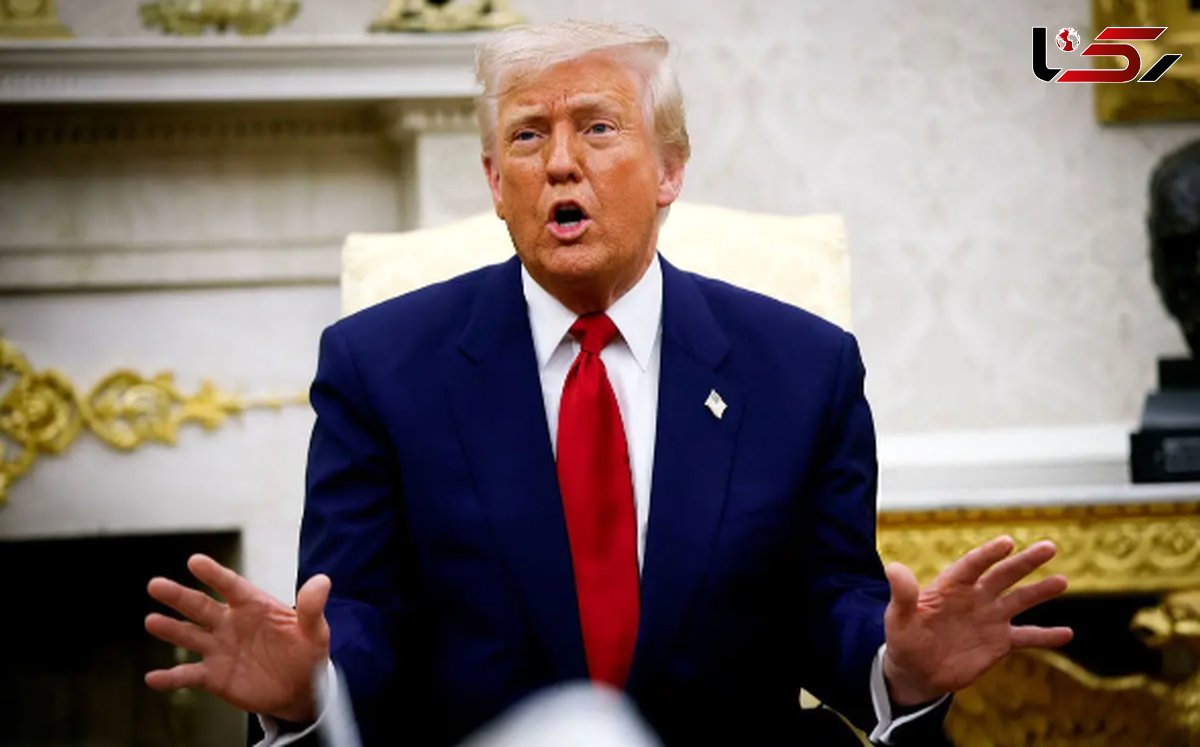Trump in Israel’s Trap / Iran Vows Decisive Strike if War Erupts
Rokna Political Desk: There is a possibility that Israel may initiate another war against Iran before December (Azar) and perhaps even earlier, before the end of August (early Shahrivar). Iran has anticipated such an action and has signaled a shift in its strategy compared to the previous war.

According to France Presse, if the next round of war begins, Iran will likely replace gradual missile strikes with a decisive offensive to demonstrate that it will not be influenced by Israel’s military dominance. Consequently, it is predicted that the next war would be bloodier. If Donald Trump, the U.S. president, yields to Israeli pressure and joins the battle, the United States will face a full-scale war with Iran, likely far more challenging than the Iraq War. The June war launched by Israel against Iran was not solely aimed at dismantling Iran’s nuclear program. Its primary goal was to alter the balance of power in the Middle East. For over two decades, Israel had pressured the United States to take military action against Iran and to restore the balance in Israel’s favor by weakening Iran—something Israel could not achieve alone.
The June war by Israel targeted not only Iran’s nuclear infrastructure but also pursued three main objectives: drawing the United States into a military confrontation with Iran, crippling Iran’s system of governance, and turning Iran into another Syria or Lebanon that Israel could bomb with impunity. Of these objectives, only one was achieved: Trump’s limited involvement. At best, it can be said that Israel secured a partial victory from the June attacks. The outcome Israel desired was full U.S. engagement in targeting Iran’s conventional forces and economic infrastructure. However, while Trump was inclined toward decisive action, he also feared a full-scale war.
Trump’s avoidance of going beyond limited bombing was the main reason Israel agreed to a ceasefire. Israel suffered serious damage, and Iran’s missile capability proved more effective against Israeli air defenses. If Trump had been willing to continue his involvement, Israel would have persisted in the war; but once Tel Aviv realized Trump’s intervention was a one-time measure, it recalculated its strategy. Israel managed to pull the U.S. into the war but failed to keep it there.
Two of Israel’s objectives failed
Two other Israeli objectives clearly failed. Despite intelligence successes, including the killing of 30 senior commanders and 19 nuclear scientists, these actions only temporarily disrupted Iran’s command and control system. Iran quickly replaced its commanders and launched heavy missile barrages, demonstrating its resilience. Israel’s hope that the attacks would instill fear and contribute to the overthrow of the Iranian system was also dashed. Mossad’s efforts to encourage officials to disassociate themselves from the system proved fruitless, and the unity of Iran’s governing structure remained intact.
Contrary to Israel’s expectations, there were no widespread protests in Iran; instead, a wave of nationalism surged among Iranians. Moreover, Israel failed to turn Iran into another Syria that it could attack without U.S. backing. Although Israel gained aerial superiority over Iran, the continuation of Iranian missile strikes proved intolerable for Israel.
Iran rebuilding its military capabilities
Given these outcomes, another Israeli military action is possible. Israeli officials have declared that the June attacks were only the first phase. Iran’s ongoing military reconstruction encourages Israel to plan a renewed strike sooner rather than later. The political calendar—particularly the upcoming U.S. midterm congressional elections—increases the likelihood of an attack in the coming months. Iran intends to create deterrence by dramatically increasing the costs of any such assault. Its goal is to launch a swift and decisive strike from the very first moment.
Trump’s role in the next war is decisive
According to Iranian officials, any other course of action would risk the loss of missile capabilities and leave Iran defenseless. Trump’s role in the next conflict will be decisive. While Trump has little interest in entering a prolonged war, by giving Israel the green light for the first round of conflict, he has fallen into Israel’s trap. Limited intervention is no longer an option. Trump must either fully commit to the war or stay out entirely—and the latter requires resolute resistance to Israeli pressure, something not yet seen from him.
Send Comments